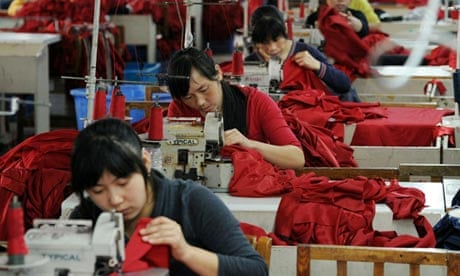With the Guiding Principles for Business and Human Rights, endorsed by the United Nations Human Rights Council in 2011, businesses are increasingly expected to measure and mitigate their social and environmental impact, tackle their supply chains and play a responsible role in society.
We gathered a group of experts in the area to discuss the challenges businesses face when standing up to these expectations. On the panel were: Ed Potter, director, global workplace rights at The Coca-Cola Company; Abi Price, corporate social responsibilty specialist at Hitachi; Antony Crockett, senior associate at Clifford Chance; Graham Baxter, senior adviser at International Business Leaders Forum; and Sarah Repucci, programme director at Global Business Initiative on Human Rights.
Identify, prevent, mitigate
For business, understanding their human rights exposure and addressing potential human rights violations is an important responsibility. Hitachi's Abi Price explains that one way of identifying, preventing and mitigating its impacts is gathering people with different functions and expertise around one table. Once together, they are able join up their thinking and explore potential impacts down the value chain, from suppliers to unintended use of products. From here, the risks can be assessed in terms of likelihood and severity and strategies can be put in place, starting with addressing the most severe impacts.
For perspectives and tools on understanding and responding to human rights risks, Ed Potter recommends reading, How to do Business with Respect for Human Rights: A Guidance Tool for Companies, published by the Global Compact Network Netherlands and written by David Vermijs, who provided research assistance to Professor John Ruggie, the former UN Special Representative for Business and Human Rights.
Above and beyond
In some cases, local law in the area a business operates in will be at odds with international standards and where this happens, Sarah Repucci stresses keeping in mind the concept of doing no harm. If complying with local legislation will infringe on human rights, the Guiding Principles state you must go above and beyond local obligations to follow international standards.
On a practical level, Antony Crockett suggests obtaining local law advice, considering the applicable international standards and exploring any gaps and conflicts between the two.
Embedding human rights into business strategy
Crockett says that society increasingly has basic expectations of how the business community behaves and that corporate law is evolving to reflect this. Now more than ever, as the UK government proposes an amendment to the Companies Act requiring companies listed in the UK to include human rights information in annual strategic reports, embedding human rights into the business strategy is crucial.
To do so, Repucci believes in changing the culture of an organisation through strong leadership from top level management along with training programmes that communicate to employees why human rights are important and what they can do to help.
Graham Baxter adds that translating the confusing human rights terminology into everyday operational language that people outside the legal team can understand is also key to truly embedding a human rights culture into an organisation.
Overcoming policy implementation challenges across operations
For Hitachi, a giant matrix organisation with over 900 separate legal entities across the world, pushing human rights policy across entire operations is no small feat. To tackle the challenge, Price explains Hitachi will write guidance documents on policy and implementation for companies across the network, and provide face to face support while they endeavour to integrate due diligence and remediation mechanisms.
The Coca-Cola Company's Ed Potter, highlights the challenges of knowing and managing a company's supply chain. While there is influence over direct suppliers, that level of control dwindles as you venture further down the supply chain. Potter explains The Coca-Cola Company is working with first tier suppliers on mapping their supply chains and auditing those suppliers and below.
Again, we come back to the importance of leadership. In large, decentralised companies where access to local offices from the headquarters is difficult, having a corporate culture in which respect for human rights is ingrained, is crucial. Repucci emphasises designing tailor made training that accounts for the autonomy of different offices and communicates the benefits of implementing policy rather than straightforwardly demanding "you have to do this."
Actions speak louder than words
As Baxter and Crockett both rightly point out, putting a statement on a company website or saying you're doing the right thing in a glossy corporate social responsibility brochure, is not the same as ensuring everyone in the company is respecting human rights throughout its operations.
While Repucci agrees that 'doing' human rights is the real objective, showing what you're doing is equally as important. Communicating your work, she continues, improves public relations by keeping the company and communities informed, while also providing an opportunity for critical feedback.
Baxter concludes that if what you're telling everyone reflects the reality on the ground, then this is welcomed transparency, however he wishes more companies would be honest about what they got wrong and learned along the way, rather giving a rose-tinted account.
Credits
This content is brought to you by Guardian Sustainable Business in association with Hitachi. Produced by Guardian Professional to a brief agreed with Hitachi. Paid for by Hitachi. All editorial controlled and overseen by the Guardian.

Comments (…)
Sign in or create your Guardian account to join the discussion